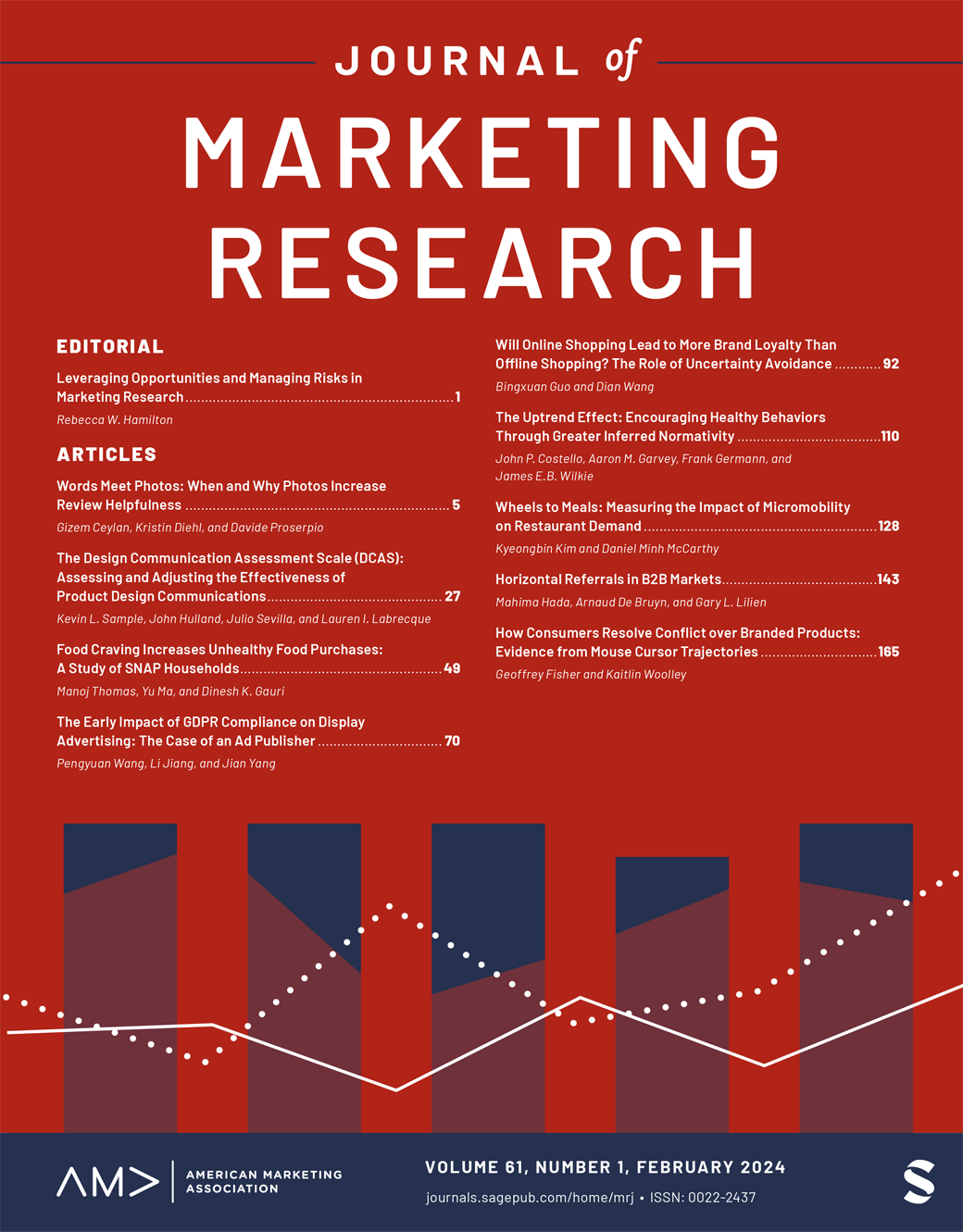EXPRESS: How can Publishers Collaborate and Compete with News Aggregators?
IF 5
1区 管理学
Q1 BUSINESS
引用次数: 0
Abstract
Publishers face an existential threat from a variety of news aggregators, such as free aggregators (e.g., Google News, Yahoo! News), micropayment-facilitating aggregators (e.g., Blendle), and subscription-charging aggregators (e.g., Apple News+). We seek to theoretically examine whether publishers can collaborate and compete with the different types of news aggregators and, if so, what pricing and content-sharing strategies should publishers pursue. In the absence of a news aggregator, publishers sell their content as a composite publication; this intensifies inter-publisher price competition and hurts publishers’ profits. A free aggregator, however, could help unbundle the articles of a publisher. Moreover, if publishers share articles on the same topic with a free aggregator, they can completely eliminate inter-publisher competition and replace it with competition between the aggregator and the publishers; but only partially eliminate inter-publisher competition if they share articles on different topics with it. Yet, the free aggregator needs to bring sufficient additional traffic to the publishers to motivate them to share content and collaborate with it. Conversely, publishers will be willing to collaborate with a micropayment-facilitating aggregator even if it does not bring additional traffic to the publishers. This is because a micropayment-facilitating aggregator helps publishers unbundle their content and price discriminate. Lastly, publishers can be motivated to collaborate even with a subscription-charging aggregator that is powerful enough to dictate the terms of the revenue-sharing arrangement with the publishers. This is because the subscription-charging aggregator improves its profits without hurting the publishers’ surplus.EXPRESS:出版商如何与新闻聚合者合作和竞争?
出版商面临着来自各种新闻聚合器的生存威胁,例如免费聚合器(例如b谷歌news、Yahoo!新闻)、促进小额支付的聚合器(如Blendle)和订阅收费聚合器(如Apple News+)。我们试图从理论上检验出版商是否可以与不同类型的新闻聚合器合作和竞争,如果可以,出版商应该采取什么样的定价和内容共享策略。在没有新闻聚合器的情况下,出版商将其内容作为复合出版物出售;这加剧了出版商之间的价格竞争,损害了出版商的利润。然而,一个免费的聚合器可以帮助拆分出版商的文章。此外,如果出版商与免费聚合器共享同一主题的文章,他们可以完全消除出版商之间的竞争,取而代之的是聚合器与出版商之间的竞争;但如果他们与它分享不同主题的文章,只能部分消除出版商之间的竞争。然而,免费聚合器需要为发布者带来足够的额外流量,以激励他们分享内容并与其合作。相反,发布者也愿意与微支付聚合器合作,即使这不会给发布者带来额外的流量。这是因为促进小额支付的聚合器可以帮助出版商解除内容捆绑和价格歧视。最后,发行商可能会受到激励,甚至与订阅收费聚合器合作,因为后者强大到足以决定与发行商的收益分享协议条款。这是因为订阅收费聚合器在不损害出版商盈余的情况下提高了利润。
本文章由计算机程序翻译,如有差异,请以英文原文为准。
求助全文
约1分钟内获得全文
求助全文
来源期刊

Journal of Marketing Research
BUSINESS-
CiteScore
10.30
自引率
6.60%
发文量
79
期刊介绍:
JMR is written for those academics and practitioners of marketing research who need to be in the forefront of the profession and in possession of the industry"s cutting-edge information. JMR publishes articles representing the entire spectrum of research in marketing. The editorial content is peer-reviewed by an expert panel of leading academics. Articles address the concepts, methods, and applications of marketing research that present new techniques for solving marketing problems; contribute to marketing knowledge based on the use of experimental, descriptive, or analytical techniques; and review and comment on the developments and concepts in related fields that have a bearing on the research industry and its practices.
 求助内容:
求助内容: 应助结果提醒方式:
应助结果提醒方式:


